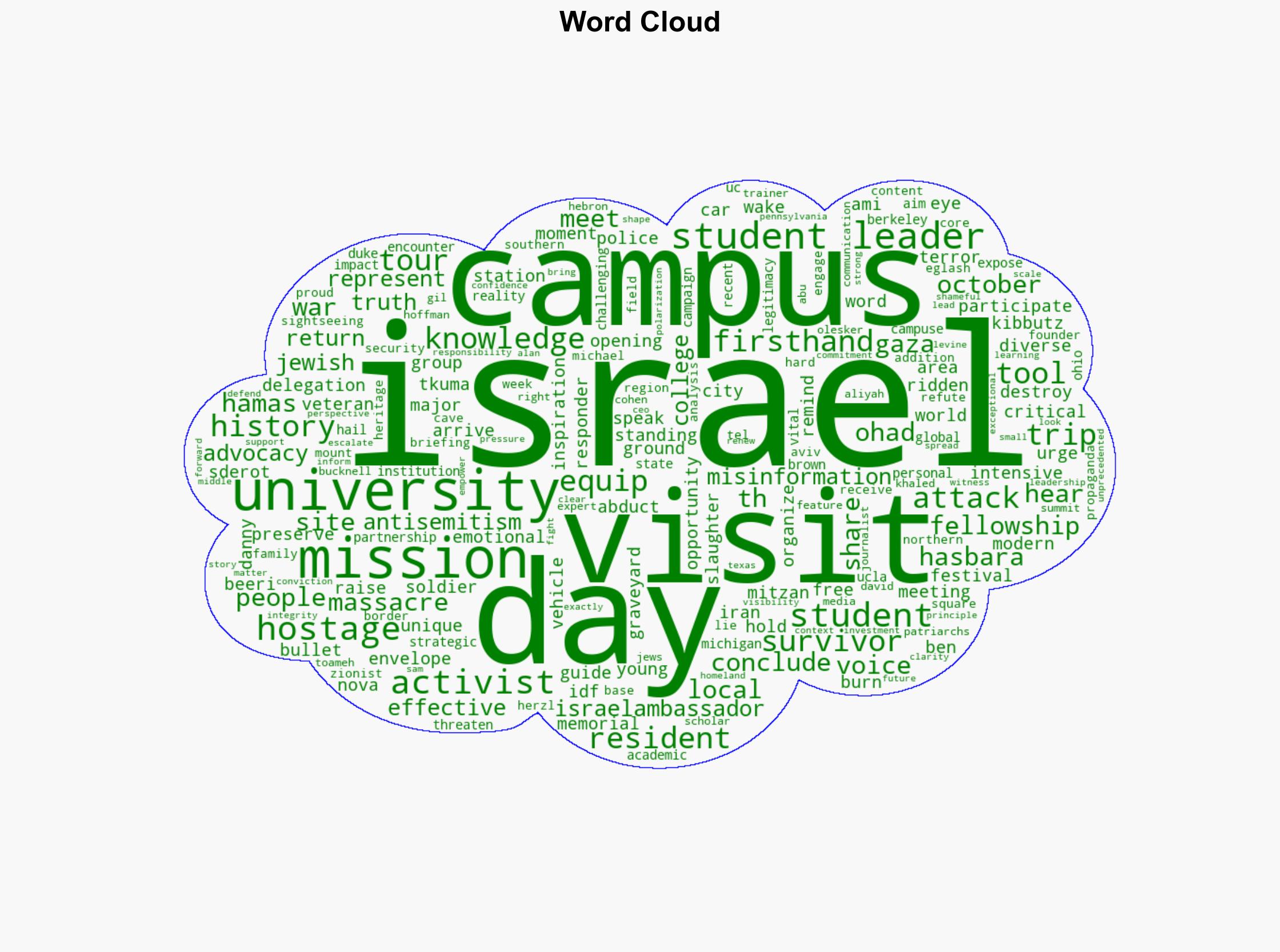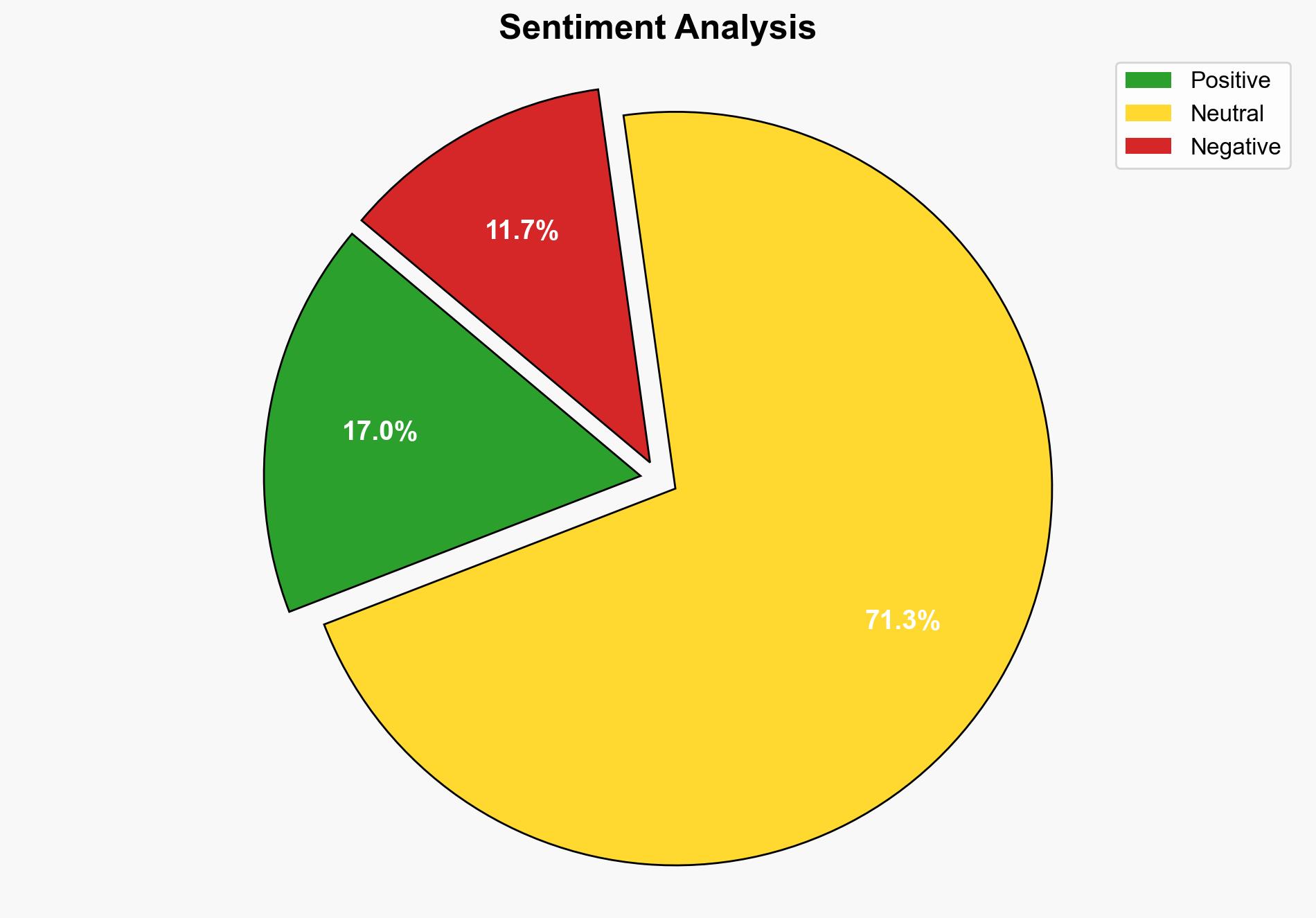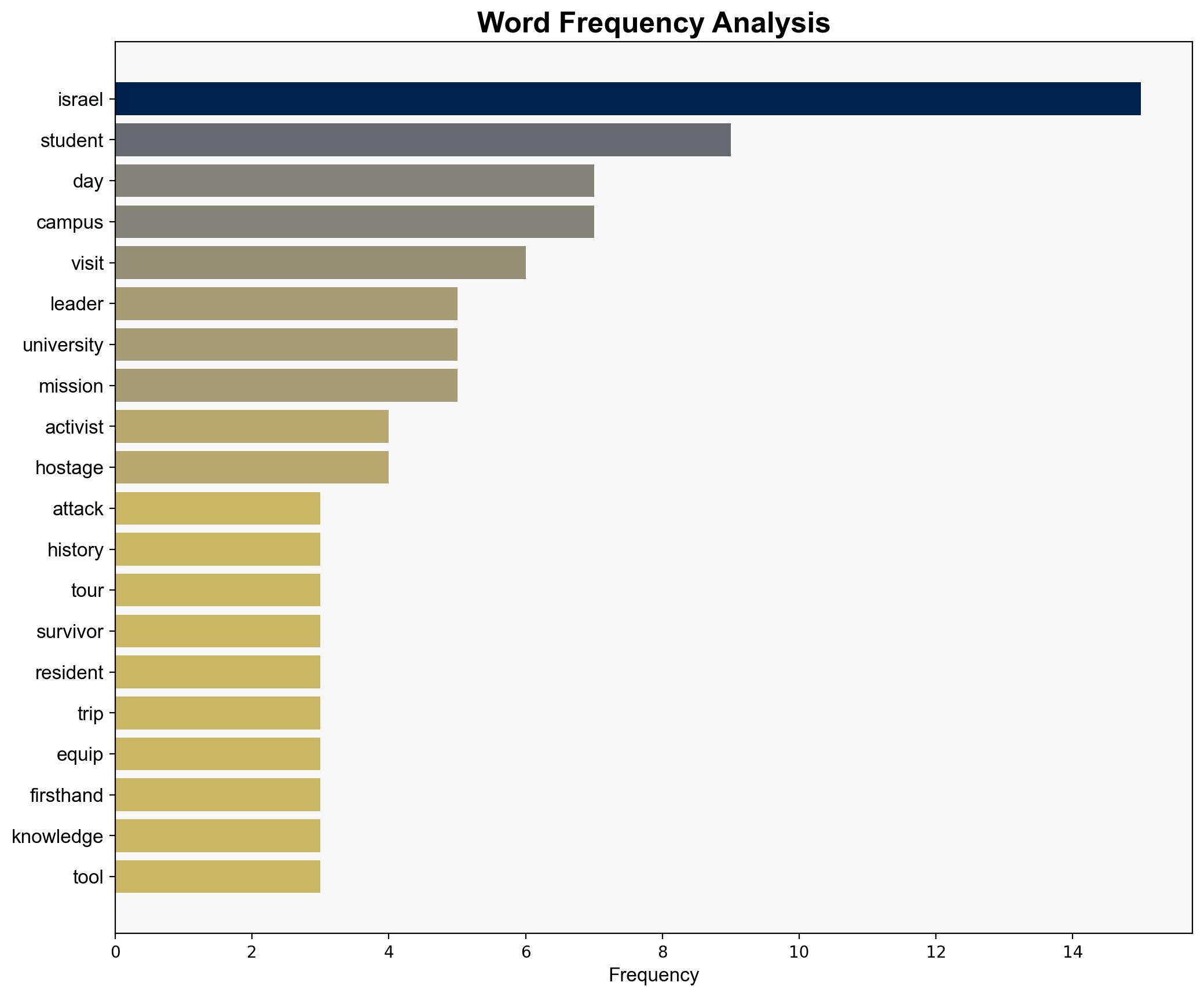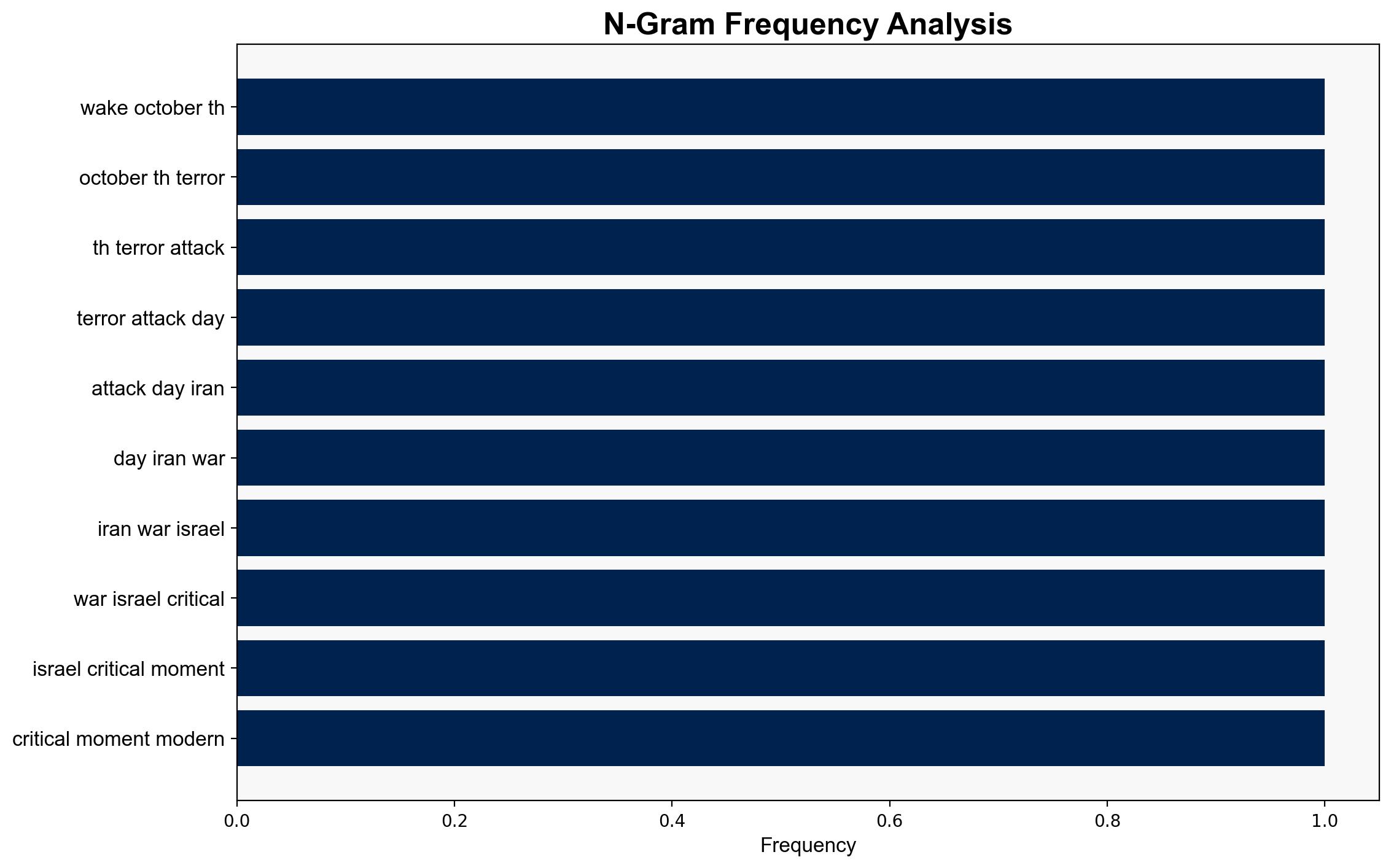US student leaders meet Hamas captivity survivor Ohad Ben Ami – Israelnationalnews.com
Published on: 2025-08-09
Intelligence Report: US student leaders meet Hamas captivity survivor Ohad Ben Ami – Israelnationalnews.com
1. BLUF (Bottom Line Up Front)
The most supported hypothesis is that the student leaders’ visit to Israel is primarily an educational mission aimed at bolstering pro-Israel advocacy on U.S. campuses. This conclusion is drawn with moderate confidence due to the structured nature of the visit and the involvement of organizations like Hasbara Fellowship. Recommended action includes monitoring the impact of these advocacy efforts on campus dynamics and potential shifts in public opinion.
2. Competing Hypotheses
1. **Educational Advocacy Mission Hypothesis**: The visit is designed to educate student leaders about the complexities of the Israeli-Palestinian conflict, equipping them with firsthand experiences to advocate for Israel on U.S. campuses.
2. **Propaganda and Influence Operation Hypothesis**: The visit serves as a strategic influence operation to counteract global misinformation and enhance Israel’s image, potentially leveraging student leaders as informal ambassadors to sway public opinion in favor of Israel.
Using the Analysis of Competing Hypotheses (ACH) 2.0, the first hypothesis is better supported due to the structured itinerary focusing on educational and advocacy elements, as well as the involvement of educational organizations.
3. Key Assumptions and Red Flags
– **Assumptions**: It is assumed that the student leaders have the capacity and willingness to influence campus discourse. Another assumption is that firsthand experiences will translate into effective advocacy.
– **Red Flags**: The potential for bias in the presentation of information to the students, as well as the lack of diverse perspectives on the conflict, could skew their understanding and subsequent advocacy efforts.
– **Blind Spots**: The report does not address the potential backlash or polarization that might occur on campuses as a result of this advocacy.
4. Implications and Strategic Risks
– **Geopolitical**: Increased advocacy for Israel on U.S. campuses may lead to heightened tensions between pro-Israel and pro-Palestinian groups, potentially escalating into broader geopolitical discourse.
– **Psychological**: The emotional impact of meeting survivors and visiting attack sites may reinforce strong biases, limiting open dialogue.
– **Cascading Threats**: A rise in campus activism could lead to increased incidents of antisemitism or anti-Israel sentiment, impacting campus safety and community relations.
5. Recommendations and Outlook
- **Mitigation**: Encourage balanced educational programs that include diverse perspectives on the Israeli-Palestinian conflict to foster informed dialogue.
- **Exploitation**: Leverage the experiences of student leaders to promote peace-building initiatives and cross-cultural understanding on campuses.
- **Scenario Projections**:
– **Best Case**: The advocacy efforts lead to increased understanding and reduced tensions on campuses.
– **Worst Case**: The efforts exacerbate campus divisions and contribute to a hostile environment.
– **Most Likely**: The advocacy will have a moderate impact, with some positive shifts in discourse but also isolated incidents of tension.
6. Key Individuals and Entities
– Ohad Ben Ami
– Danny Mitzan
– Michael Eglash
– Alan Levine
7. Thematic Tags
national security threats, counter-terrorism, regional focus, educational advocacy, campus dynamics




